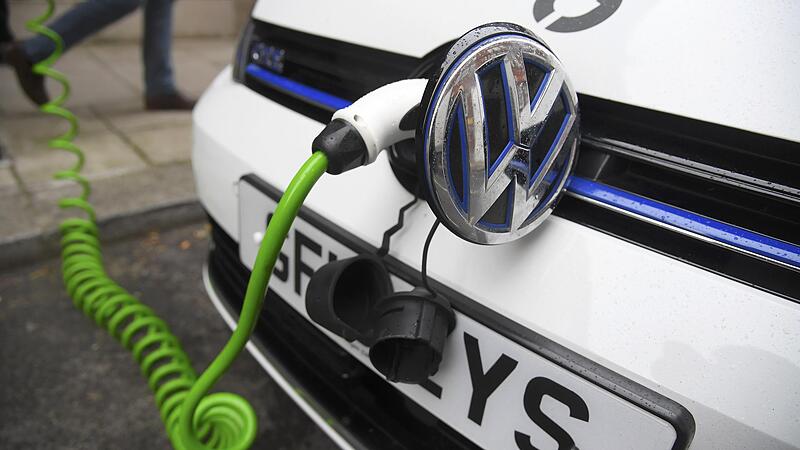Image: Reuters
Since the corona pandemic, there has been a shortage of skilled workers in the industry anyway.
“When new topics such as electromobility are added, it becomes even more difficult. Many workshops are not even familiar with high-voltage technology,” says Stefan Bratzel from the Center of Automotive Management, explaining the problem that is affecting the industry worldwide. Whether Melbourne, Malibu, Milan or Munich – many owners of independent garages shy away from the high costs for training and equipment. And it is precisely the independent companies, which are cheaper than the authorized workshops, that are important for the acceptance of e-mobility, say experts.
The necessary equipment for repairing electric cars would cost him around 30,000 euros, calculates the 60-year-old workshop owner Roberto Petrilli in Milan. “I’m still seven years away from retirement and I don’t think it’s worth it anymore,” he says. Repairing an electric motor requires different skills than a combustion engine, but also different workshop equipment and special safety measures. The mechanics work with 400 to 800 volt systems. There is a risk of death from electric shock or battery fires, which are notoriously difficult to extinguish. Daniel Brown, head of automotive product development at Lucas-Nülle, a manufacturer of training systems, fears that unqualified technicians could be used. “It’s only a matter of time before someone gets hurt.”
skills shortage
Everywhere workshops are complaining about a shortage of skilled workers. The British Institute of the Motor Industry (IMI) predicts that there will be a shortage of around 25,000 electrical engineers after the end of combustion engines in the 2030s. In the USA, the second largest automotive market after China, growth with e-cars has lagged behind that in Europe. Nevertheless, the Bureau of Labor Statistics expects that around 80,000 electronics technicians will be needed annually by 2031, including technicians for repairing electric cars or installing chargers. Australia could be short of 9,000 electrical engineers by 2030, predicts the Victorian Automotive Chamber of Commerce.
According to the German Central Association of Motor Vehicle Trades (ZDK), 35,000 employees in Germany have been qualified with a special concept for working on e-cars. The training to become a vehicle mechatronics technician also imparts these skills. “The network with additional eCar service symbols as a sign of special electrical competence for independent workshops is currently being set up and is currently being run by around 450 car workshops,” explains the ZDK. But even in Germany, users report extremely long waiting times for repairs to e-cars and high costs.
“Bottleneck becomes a problem”
“The staff shortage is becoming a problem as e-mobility is becoming more widespread,” states expert Bratzel. At the same time, the expensive and lengthy repairs deter car buyers from switching to an electric vehicle. The British taxi and courier company Addison Lee has hundreds of electric cars and diesel vehicles in its fleet. E-cars are at a disadvantage when it comes to maintenance: “Repairs already take much longer,” says Andrew Wescott, who is responsible for sustainability at the company.
The British guarantee service provider Warrantywise refers to the comparatively higher costs: A one-year guarantee for a Tesla Model 3 is three times as expensive as for comparable models that run on fossil fuels. Company boss Lawrence Whittaker adds that Warrantywise has to hire expensive franchise dealers to repair electric vehicles because they have qualified technicians – in contrast to the independent workshops. That’s why he fears that higher insurance and warranty costs will dampen demand for electric cars. “How are people supposed to afford the higher repair costs?”
Experts see the state as having an obligation
In view of the goals that many governments have set themselves in terms of e-mobility, experts also see the state as having an obligation: In Great Britain, the Institute of Motor Industry is demanding £15 million (EUR 17.5 million) from the government to help independent workshops fund training. In Australia, where around 50 percent of new cars are projected to be electric by 2030, the Motor Traders’ Association of New South Wales (MTA NSW) estimates that training the nearly 50,000 licensed automotive technicians to repair EVs will benefit the state 100 million Australian dollars (59.5 million euros). Smaller workshops need state support for training, the lobby group demands. Otherwise, the combustion engine had priority.
David Etzwiler, head of the Siemens Foundation, agrees. The organization has set up a $30 million (€28 million) program in the US to train US technicians to install and maintain EV chargers. Etzwiler warns that a shortage of trained workers will slow down the switch to e-mobility. “The number of jobs that are needed in this field is immense. And they are needed now.”
Source: Nachrichten




